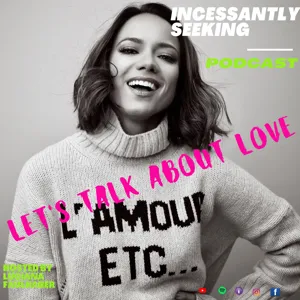Podcast Summary
Dan Harris thanks paid subscribers for supporting free access to podcasts for frontline workers: Dan Harris interviews researcher Keith Campbell about narcissism, discussing differences and coping strategies, emphasizing importance of understanding complexities and supporting podcast initiatives
Dan Harris, host of the 10% Happier podcast, is expressing gratitude to his paid subscribers for their support, which enables the show to offer free access to podcasts for frontline workers, including teachers, healthcare workers, and US Postal Service employees. Additionally, Harris interviewed researcher Keith Campbell about narcissism, discussing the differences between garden variety narcissism and narcissistic personality disorder, grandiose and vulnerable narcissism, and coping strategies for dealing with narcissism. Harris admitted that he's often used the term "narcissist" casually but didn't fully understand the concept until speaking with Campbell. Overall, the podcast episode sheds light on the complexities of narcissism and its impact on individuals and society, while also emphasizing the importance of supporting podcasts and their free access initiatives.
Understanding the Complexities of Narcissism: Grandiose vs. Vulnerable: Narcissism is a complex personality trait with two primary forms: grandiose and vulnerable, each with unique characteristics leading to success, power, or vulnerability and insecurity. Extreme forms can result in Narcissistic Personality Disorder.
Narcissism is a complex personality trait with two primary forms: grandiose and vulnerable. Grandiose narcissism is characterized by traits such as lack of empathy, entitlement, callousness, and charm, often leading individuals to achieve success and rise to power. Vulnerable narcissism, on the other hand, involves a sense of entitlement and self-centeredness, but with added vulnerability, insecurity, and a need for validation and appreciation. Both forms can coexist within individuals, leading to fluctuations between feelings of grandiosity and vulnerability. When these traits become extreme and inflexible, they can result in Narcissistic Personality Disorder (NPD), a rare disorder affecting less than 1% of the population. Understanding the complexities of narcissism, including its various forms and their potential impact on individuals, can provide valuable insights into human behavior and relationships.
Understanding Narcissism in Relationships: Identifying narcissistic behaviors can help improve relationships by fostering open communication, understanding, and personal growth. Focus on addressing specific behaviors and their impact, rather than labeling a partner.
Understanding narcissism and identifying where you or your partner may fall on the spectrum can be a valuable tool for addressing and improving relationships. While modern psychotherapy may not offer immediate relief, gaining insight into narcissistic behaviors and tendencies can help individuals work on areas of personal growth, such as practicing gratitude, building confidence, or learning to take criticism. By recognizing and addressing the rough spots in relationships caused by ego, open communication and understanding can lead to healthier and more fulfilling connections. However, it's important to remember that narcissism is not a clinical disorder in relationships and over-analyzing a partner's personality may not be productive in the long run. Instead, focusing on specific behaviors and their impact on the relationship can lead to effective solutions and improved communication.
Appeal to their altruistic side: Instead of confronting narcissism directly, try appealing to their compassionate side to improve relationships.
When dealing with narcissism in relationships, instead of directly confronting the selfish and self-centered behavior, try appealing to their altruistic side. This approach can be more effective and less defensive, as it focuses on bringing up compassion, warmth, and interpersonal skills. Additionally, research suggests that self-awareness or self-consciousness can be unpleasant and even boring, and focusing on helping others can lead to greater interpersonal fulfillment. This strategy may not be a definitive solution, but it could potentially reduce the negative effects of narcissism and improve overall relationships.
Narcissists acknowledge benefits and drawbacks: Narcissists recognize their traits and strive to be less antagonistic, but separating drive from ego is key to avoiding entitled leadership.
People with narcissistic tendencies are more self-aware than previously thought, acknowledging both the benefits and drawbacks of their traits. They express a desire to be less antagonistic and improve their relationships. The challenge lies in separating the drive from the ego, striving for ambition without being a jerk or an entitled leader. Buddhism offers insights on this through practices like servant leadership and detachment from outcomes. While spiritual practices can help reduce narcissistic tendencies, they can also be exploited for narcissistic gain. The Dalai Lama, an exemplary leader, demonstrates that it's possible to be ambitious without being an egomaniac by focusing on benefiting others and detaching from outcomes.
Exploring Mental Health Through a Fun Podcast: The Cat in the Hatcast offers a distraction from mental health struggles while discussing complex issues like depression, anxiety, and narcissism. Societal shifts may contribute to increased mental health issues without necessarily leading to more narcissism.
Our mental health, including depression and anxiety, can be complex and intertwined with our ego. The Cat in the Hatcast, a new family podcast from Wondery, offers a fun and engaging distraction from our own thoughts. Meanwhile, the discussion touched on how depression and anxiety can lead to self-focus and narcissism. A study by Gene Twang and the authors of "The Narcissism Epidemic" suggested that narcissism was on the rise before the Great Recession but has since stabilized or even decreased. However, societal shifts, such as the coronavirus pandemic and the prevalence of social media, may be contributing to increased depression and anxiety without necessarily leading to more narcissism. Ultimately, it's essential to remember that mental health is a complex issue, and reaching out to help others can be a powerful way to transcend our own struggles.
The Complex Relationship Between Social Media and Narcissism: Social media can increase narcissistic behavior but also cause stress and pressure. To combat narcissism, focus on compassion, passion, and resilience.
Social media and narcissism have a complex relationship. While narcissistic individuals may use social media more effectively, it doesn't necessarily make people more narcissistic. Instead, social media can be a source of stress and pressure, particularly regarding self-image. Young people, in particular, have created alternative platforms like Snapchat and TikTok to reduce this pressure. Furthermore, the constant exposure to celebrity culture and the pressure to present a perfect image online can lead to issues like depression, low self-esteem, and even plastic surgery. To combat narcissism, Dan Goleman suggests the CPR approach: Compassion, Passion, and Resilience. Compassion involves building strong interpersonal relationships and caring for others, which acts as a buffer against narcissism. Passion refers to doing things out of love or enjoyment, which can help individuals focus on their interests rather than their egos. Resilience is the ability to bounce back from setbacks and challenges, which is essential for maintaining a healthy perspective on oneself and one's place in the world. By focusing on these three areas, individuals can reduce the negative effects of social media and narcissism on their lives.
Focusing on compassion, passion, and responsibility can help buffer against narcissistic tendencies: Immerse in joyful activities, take responsibility for mistakes, and apply CPR in relationships for personal growth and improved performance
Focusing on passion and responsibility can help buffer against narcissistic tendencies. The concept of CPR (Compassion, Passion, and Responsibility) can serve as a useful framework for individuals, particularly parents, to help develop these qualities in themselves and others. By immersing oneself in activities that bring joy and love, the ego's strength is diminished. Additionally, taking responsibility for mistakes and failures, even when not directly at fault, can lead to improved performance, respect from others, and personal growth. These practices can be applied not only to oneself but also to relationships with difficult bosses or partners. Natural consequences in life, such as those encountered in outdoor activities, can further reinforce the importance of self-responsibility and help individuals gain a better understanding of their strengths and weaknesses.
Using Ego as a Tool for Personal Growth: Ego can be a useful tool for personal growth and success, but it's important to keep it in check and not let it consume relationships or life.
Having an ego can be a useful tool for personal growth and success, but it's important to keep it in check and not let it take over. The speaker shares his personal experience with being passionate about writing and checking metrics, which can be seen as ego involvement. However, he frames it as a way to improve performance and serve people better. The speaker suggests viewing ego as a tool in your toolbox, which can be used when needed but put away when not necessary. It's essential to recognize that everyone has an ego and it's not wrong to want to be successful, but it's crucial not to let it destroy relationships or consume your life. The conversation emphasizes the importance of finding a balance and using ego as a means to improve rather than a source of destruction.
Balancing Ego and Selflessness: Understanding ego and narcissism is vital for personal growth and relationships. New research sheds light on narcissism as a personality trait and disorder, offering hope for future treatments.
Understanding ego and narcissism is crucial for personal growth and successful relationships. The speaker emphasizes the importance of balancing ego and selflessness, using competition as an example. They also discuss the new scientific advancements in understanding narcissism as a personality trait and disorder, and express hope for future research and treatments. Despite the challenges in the field, they remain optimistic about the potential for growth and change. The speaker's book, "The New Science of Narcissism," aims to clarify the confusion around the term and provide a solid foundation for further study. Overall, the conversation highlights the complexity of the human psyche and the importance of continued research and self-reflection.
Understanding the Complexity of Narcissism: Narcissism is a mental disorder with impairments in various aspects of life, including interpersonal relationships, cognitive distortions, and emotional disruptions, making diagnosis elastic and context-dependent.
While mental disorders like narcissism are often studied from a materialistic perspective, focusing on cells and neurons, disorders that don't clearly fit into this model, such as narcissism, are often overlooked. To be diagnosed with a clinical disorder, there must be significant impairment in one's life. This impairment could manifest as interpersonal problems, cognitive distortions, or emotional disruptions. For example, a narcissistic person whose narcissism is wrecking their marriage or career would be considered disordered. However, someone who is arrogant but not impaired, like the Dalai Lama, would not be diagnosed. The elasticity of the term "impairment" means that it can apply to various aspects of life, including sports, geeks, the military, and religion. For more information, check out Keith's new book, "The New Science of Narcissism," available September 28th, or visit his website, W. Keith Gamble.com.
The Surge of Controversial Reality TV Shows: A Case Study of 'The Swan': 'The Swan' served as a reminder of the fine line between entertainment and exploitation, as women underwent extensive transformations and were ranked in a beauty pageant, leading to isolation, berating, and surgeries.
The early 2000s saw a surge in controversial reality TV shows, and one of the most notorious examples was "The Swan." On The Big Flop podcast, host Misha Brown and comedians discussed this failed experiment, where women underwent extensive physical transformations and were then ranked in a beauty pageant. The isolation, berating, and surgeries turned a dream opportunity into a viewing nightmare. It serves as a reminder of the fine line between entertainment and exploitation. To learn more about this and other pop culture fails, listen to The Big Flop on the Wondery app or wherever you get your podcasts. If you're interested in more wisdom and mindfulness, tune in to 10% Happier with Dan Harris on Wednesday, where they'll discuss joy. Don't forget to fill out a survey at Wondery.com/survey for a chance to share your thoughts.




